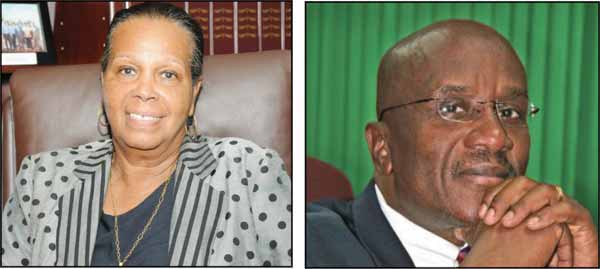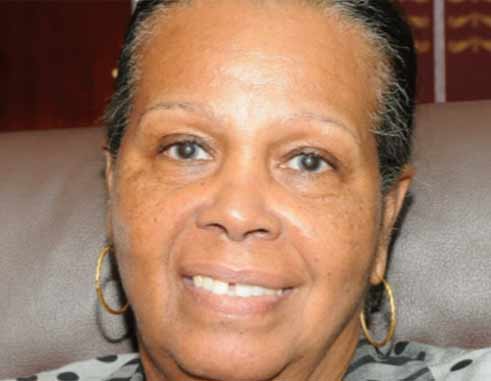
Nicholas John
THE Constitutional Reform Commission (CRC) has identified a number of issues hindering the effective functioning of the Public Accounts Committee of the House of Assembly and has called for a broadening of its membership to include an individual with the necessary accounting and investigatory skills drawn from outside Parliament.
The recommendation is contained in the Commission’s report which we continue to serialize:
The Public Accounts Committee
Public Accounts Committees are one of the instruments that Parliaments can use to check Governments’ activities. They can be institutionalised by: a country’s Constitution as in Antigua and Barbuda, St. Vincent and the Grenadines and Trinidad and Tobago; Standing Order of the Legislature as in Jamaica, Guyana and Saint Lucia; or an Act of Parliament as in Australia and the United Kingdom.
In Saint Lucia, the Public Accounts Committee (PAC) is a bipartisan select committee of Members of Parliament established by Standing Order 67 of the Standing Orders of the House of Assembly.
The PAC, has the duty to examine:- the accounts showing the appropriation of the sums granted by the Legislature to meet public expenditure; such other accounts as may be referred to the PAC by the House or under any law; and the report of the Director of Audit on any such accounts.
Hence as a select committee of Parliament, the PAC is a mechanism for overseeing Government revenue and expenditure to ensure that they are effective and honest and to ensure transparency and accountability in the financial operations of Government.
The Leader of the Opposition serves as the Chairman of the PAC which consists of five members – three Government and two Opposition representatives. Pelizzo and Stapenhurst propose that the fact that the chairmanship of the PAC is given to the Opposition performs two basic functions.
Firstly, it re-equilibrates the balance of power between the Government and the Opposition, and secondly, it performs a symbolic function in that it indicates the willingness of both the majority and the minority to operate, within the PAC, “in a perfectly bipartisan manner”.78
The PAC is empowered to hold hearings on the contents of the report of the Director of Audit, and call before it public servants from the audited organisation and the staff of the Audit Office. After the hearings, the Committee reports to the House of Assembly, commenting on the Audit findings and recommending possible action to eliminate any problems identified by the Director of Audit.
Parliament is therefore able to call to account those who are entrusted with the physical, human and financial resources provided by taxpayers. The work of the PAC, therefore, completes the cycle of accountability. It is then up to Government to respond to the Committee’s recommendations.
In a submission made to the Commission, it was indicated that the Committee rarely ever met, as some members were frustrating the convening of meetings by ensuring that a quorum could not be obtained. In addition, the report of the Director of Audit, for various reasons, was not always available in a timely manner to facilitate such meetings.
The Commission considers the PAC vital to the process of good governance and is of the view that the membership of the Committee and quorum requirements need to be reviewed. Additionally, the powers of the Committee need to be augmented in an attempt to make it more effective and to curtail any deliberate attempts to hinder its work. The Commission has therefore made appropriate recommendations in that regard.
The Commission felt that it was necessary to enact constitutional provisions mandating the entrenchment of the PAC. These provisions would give the Committee a status beyond what it currently has under the Standing Orders of Parliament. The Commission identified a number of issues hindering the proper functioning of the PAC:
The PAC cannot meet if the accounts of Government Ministries, Departments and Agencies are not tabled.
The membership is too small. Not all of the members of the Committee have the requisite skills for the task. Therefore, the Commission proposes a broadening of the membership to include persons with the necessary accounting and investigatory skills and these may be drawn from outside of Parliament as special advisors to the Committee. The PAC should be established as a joint select committee of Parliament consisting of ten members with four drawn from the Senate, two (2) being nominated by the Minority and two (2) nominated by the Government; and four (4) drawn from the House of Assembly, two (2) being nominated by the Government and two (2) nominated by the Minority; an independent member appointed by the President who shall be a forensic accountant and the Minority Leader who shall be the chair. The Commission took into account the possibility of there being no elected member of the Opposition and in such a case, the Commission felt that the President acting in his/her own deliberate judgment, should be empowered to appoint representatives from the extra-parliamentary wing of the minority party (party coming second) to fill such posts. With the new hybrid arrangements for Parliament, there will be no Ministers eligible to sit on the PAC. The PAC should be convened at the second sitting of the House of Assembly.
At any meeting of the PAC the quorum shall be three members. It is expected that this would address the issue of infrequent meetings due to lack of a quorum. The PAC should have the power to request an independent audit of an entity and should have the powers of investigating the finances of such entity whether or not an audit report has been submitted. This should allow for greater efficiency and make delinquency a thing of the past. Further, the Commission is of the view that where it is found that there has been undue delay in the preparation and submission of the report, or where it is found that there is a matter to be dealt with in an expeditious manner, the PAC should be empowered to obtain the services of a private independent auditor.
The Commission believes that adequate provisions should be made for an automatic resolution by Parliament for the approval of expenditure incurred by the PAC, should the services of a private independent auditor be required. Further, there must be the provision that Parliament makes its secretariat resources available for use by the PAC.
Recommendations
With respect to the Public Accounts Committee, the Commission recommends the following:
(137) It should be entrenched in the Constitution.
(138) Membership should be broadened to include an individual with the necessary accounting and investigatory skills and that person must be drawn from outside Parliament.
(139) Disciplinary action should be instituted against persons or entities for failing to submit timely reports, documents and information or otherwise fail to cooperate with the Committee.
(140) It should be established as a joint select committee of Parliament consisting of ten members with four drawn from the Senate, two (2) being nominated by the Minority and two (2) nominated by the Government; four (4) drawn from the House of Assembly, two
(2) being nominated by the Government and two (2) nominated by the Minority; an independent member appointed by the President, who shall be a forensic accountant and the Minority Leader who shall be the chairperson.
(141) The independent appointee with accounting skills will serve as a non-voting member.
(142) The first meeting must be convened before the second sitting of the House of Assembly.
(143) The quorum shall be three (3) members.
(144) It should have the power to request an independent audit of an entity and should have the powers of investigating the finances of that entity whether or not an audit report has been submitted.
(145) It should be empowered to obtain the services of a private independent auditor to carry out an audit in cases where it is found that there has been undue delay in the preparation and submission of the report, or where it is found that there is a matter to be dealt with in an expeditious manner.
(146) Adequate provisions should be made for an automatic resolution by Parliament for the approval of expenditure incurred by the Committee should the services of a private independent auditor be utilised.
(147) Parliament must make its secretariat resources available for use by the Committee.













